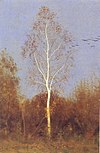User:Silasisgreat/sandbox
In part, animal studies developed out of the animal liberation movement and was grounded in ethical questions about co-existence with other species: whether it is moral to eat animals, to do scientific research on animals for human benefit, and so on. Animal studies scholars who explore the field from an ethical perspective frequently cite Australian philosopher Peter Singer's 1975 work, Animal Liberation,[1] as a founding document in animal studies. Singer's work followed Jeremy Bentham's by trying to expand utilitarian questions about pleasure and pain beyond humans to other sentient creatures. Another seminal work in the foundation of animal studies is Tom Regan's book The Case for Animal Rights in which he argued from a Kantian perspective that all sentient beings, which he refers to as "subjects-of-a-life", possess intrinsic value and should not be treat as mere receptacles. In this sense, he approaches the question of animal rights from a denotological perspective rather than a utilitarian one
Research topics and methodologies[edit]
In addition to works in Philosophy animal history is an emerging field among historians in the past decade. Although thought of as a subset of environmental history, historians have since experimented with writing about animals as though they were individuals with with subjectivity the agency to act on historical events rather than simply as trending factor independent from human control. By putting animals in the forefront historians can reinterpret and analyze events from a new epistomological perspective
Partial bibliography[edit]
- Boggs, Colleen Glenney (2013). Animalia Americana: Animal Representations and Biopolitical Subjectivity. New York: Columbia University Press. ISBN 0231161220.
- Cary, Wolfe (2003). Zoontologies: the question of the animal. Minneapolis: University of Minnesota Press. ISBN 0816641064.
- Derrida, Jacques (2008). The animal that therefore I am. New York: Fordham University Press. ISBN 082322791X.
- Haraway, Donna J. (2008). When species meet. Minneapolis: University of Minnesota Press. ISBN 0816650462.
- Lévi-strauss, Claude (1966). The Savage Mind. Chicago: University of Chicago Press. ISBN 0226474844.
- Nocella, Anthrony J. (2003). Animals and War: Confronting the Military-Animal Industrial Complex. Pennsylvania: Lexington Press. ISBN 0739186523.
- Nance, Susan (2015). The Historical Animal. New York: University of Syracuse Press. ISBN 0815634285.
- Haraway, Donna (1989). Primate Visions: Gender, race and Nature in the World of Modern Science. Psychology Press. ISBN 0415902940.
- Wolfe, Cary (2003). Animal Rites: American Culture, the Discourse of Species, and Posthumanist Theory. Chicago: University of Chicago Press. ISBN 0226905136.
- Regan, Tom (1983). The Case for Animal Rights. University of California Press. ISBN 0520243862.
- Agamben, Giorgio (2004). The Open: Man and Animal. Redwood City, CA: Stanford University Press. ISBN 0804767068.
- Pick, Anat (2011). Creaturely Poetics: Animality and Vulnerability in Literature and Film. New York City: Columbia University Press. ISBN 9780231147873.
- Ritvo, Harriet (2010). Noble cows and hybrid zebras: essays on animals and history. Charlottesville: University of Virginia Press. ISBN 081393060X.
- Salisbury, Joyce E. [in Spanish] (2010). The Beast Within. London: Routledge. ISBN 0415780950.
- Tuan, Yi-Fu (1984). Dominance and affection: the making of pets. New Haven: Yale Univ Press. ISBN 0300102089.
See also[edit]
- Intersectionality
- Anthrozoology (human–animal studies)
- Animality studies
- Critical animal studies
- Ecocriticism
- Ecosophy
References[edit]
- ^ Gorman, James (12 January 2012). "Animal Studies Move From the Lab to the Lecture Hall". The New York Times. Retrieved 13 June 2012.
External links[edit]
- Animal Rights History
- Animal Studies and Film: An interview with Matthew Brower, professor of graduate Art History at York University
- Animal Studies Bibliography compiled by Linda Kalof, Amy Fitzgerald, Jennifer Lerner and Jessica Temeles
- Animals and the Law
- Australian Animal Studies Group
- Italian Animal Studies Review


